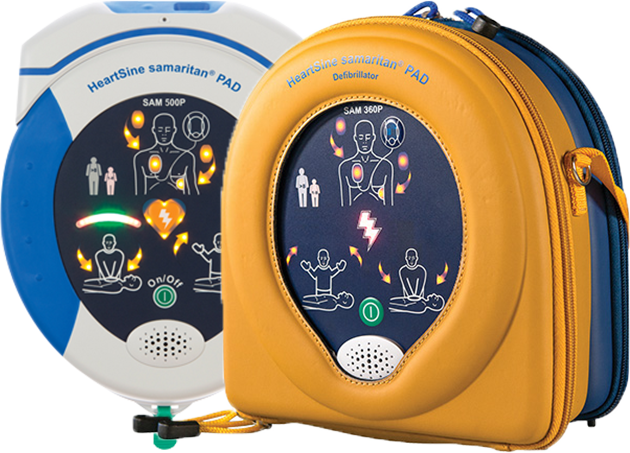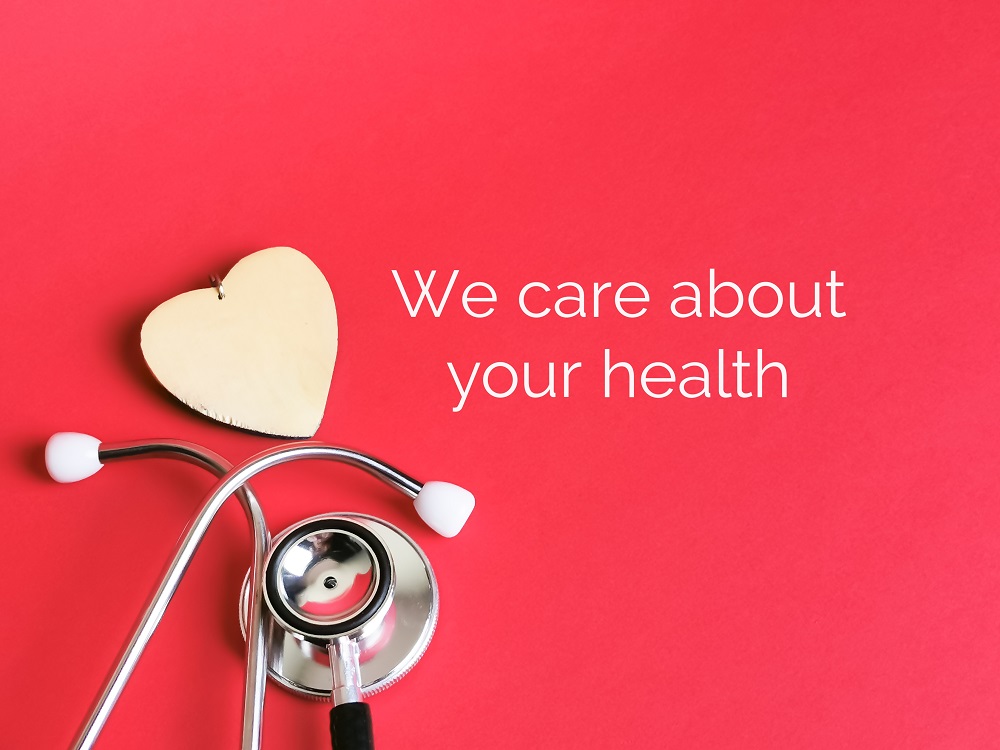Our hearts play a vital role in keeping us alive and healthy. Lifestyle habits, medical conditions and our genetic makeup can all affect the condition of our hearts.
Although heart disease is Australia’s leading cause of death, many cases of heart disease can be prevented or better managed through lifestyle changes.
Read on to find out how you can improve your heart health and reduce your risk of heart disease and cardiac arrest.
What is heart disease?
Heart disease is actually an umbrella term for a number of conditions that affect the heart, including:
- Coronary artery disease – when plaque builds up in the arteries that supply the heart muscle with blood.
- Congenital heart defects – heart defects that a person is born with.
- Arrhythmia – irregular rhythm of the heart beat.
- Valve disease – when one or more valves responsible for opening and closing blood vessels is damaged or diseased.
- Heart failure – when the heart muscle is damaged and no longer pumps properly.
Depending on the condition a person has, they may experience chest pain (angina), feel short on breath or feel easily fatigued. Heart disease may also lead to heart attack and/or cardiac arrest.
Ways to improve your heart health
Keeping your heart healthy is the best way to prevent heart disease or manage the condition. There are many things you can control in your diet and lifestyle which will help strengthen your heart.

Eat a healthy diet
When it comes to building a healthy diet, look for long term solutions and sustainable changes rather than ‘quick-fix’ diets. Avoid foods which are high in unhealthy fats, salt and sugar. Instead, eat a diet rich in healthy fats, fibre and antioxidants.
Some great foods for your heart include:
- Vegetables and fruit
- Wholegrains
- Healthy fats (omega-3 and omega-6) like avocados, fish and nuts
- Plant based proteins like beans, lentils, nuts and chickpeas
- Herbs and spices
Don’t overeat
In addition to eating healthy foods, it’s also important not to overeat. Overeating can lead to excess body fat, higher blood pressure and higher cholesterol levels which put you at higher risk of heart disease.
Serve a balanced plate of food at meal time and avoid going for second helpings. Avoid snacking in front of the TV or computer where you are less likely to pay attention to how much you are eating.
Limit alcohol intake
Drinking excessive amounts of alcohol can affect your heart in the long term. Alcohol may lead to higher blood pressure, weaker heart muscle and irregular heart rhythms.

Australian guidelines recommend no more than 10 standard drinks in a week and no more than 4 standard drinks in one day. However, you should consult your doctor about the recommended intake for your own health.
Stay active
Doing exercise can help reduce your risk of heart disease, as well as lower your blood pressure, reduce cholesterol levels and help you maintain a healthy weight.

Aim for 30-45 minutes of moderate exercise everyday. In addition to cardio exercise like walking, jogging and cycling, you should also incorporate weight based exercises into your routine to help build muscle.
Give up smoking
Smoking can damage the blood vessels in your body, greatly increasing the risk of heart disease. People in your family who consume secondhand smoke could also be put at risk.

Quitting smoking isn’t always easy and it’s important to reach out for support along the way if you need it. The good news is that quitting now will decrease your risk almost straight away.
What are the risk factors for heart disease?
There are some risk factors for heart disease that you can control, such as diet, exercise and lifestyle habits. Other risk factors may be medical, and some may be out of your control, such as your ethnic background or family history.
Lifestyle risks include:
- Smoking
- Eating a diet high in unhealthy fats, salt and sugar
- Being inactive
- Being overweight or obese
- Drinking high amounts of alcohol
Underlying health conditions may also put you at risk of developing heart disease. Most of these can be managed with a healthy lifestyle and/or medication.
Health conditions that increase the risk of heart disease include:
- High blood pressure
- High cholesterol
- Diabetes
- Mental health conditions
Some risk factors may be out of your control. For example, if you have a family history of heart disease, you may be at higher risk. Some ethnic backgrounds, such as Maori, Pacific Islander and South Asian, have an increased risk.
Are you at risk of cardiac arrest?
A cardiac arrest is when the heart stops beating and blood is no longer supplied to the brain and other vital organs in the body. It is different to a heart attack which happens when one of the blood vessels supplying blood to the heart muscle is blocked.

A cardiac arrest usually happens when something disrupts the electrical system of your heart. Heart disease is one of the common causes, although trauma, breathing problems, allergic reactions and electrocution can all cause cardiac arrest too.
When someone is experiencing cardiac arrest they will usually collapse, lose consciousness and stop breathing.
How is cardiac arrest treated?
Cardiac arrest is a medical emergency and should be treated straight away with chest compressions and defibrillation. If you notice someone experiencing the symptoms of cardiac arrest, you should call 000 immediately.

Cardiopulmonary Resuscitation (CPR) should be given to the patient until a defibrillation device, such as the Heartsine defibrillator, can be administered. CPR chest compressions and defibrillation are designed to restart a heart that has stopped beating.
Automated external defibrillators (AEDs) such as the Heartsine 360p defibrillator are designed to be kept in public places and used by anyone, not just medically trained professionals.
Make healthy changes now
There’s no better time to start looking after your heart than now. Making lifestyle changes can help reduce your risk of developing heart disease or further complications such as cardiac arrest. It’s also important to stay informed about your health and go to regular check-ups with your doctor.



















